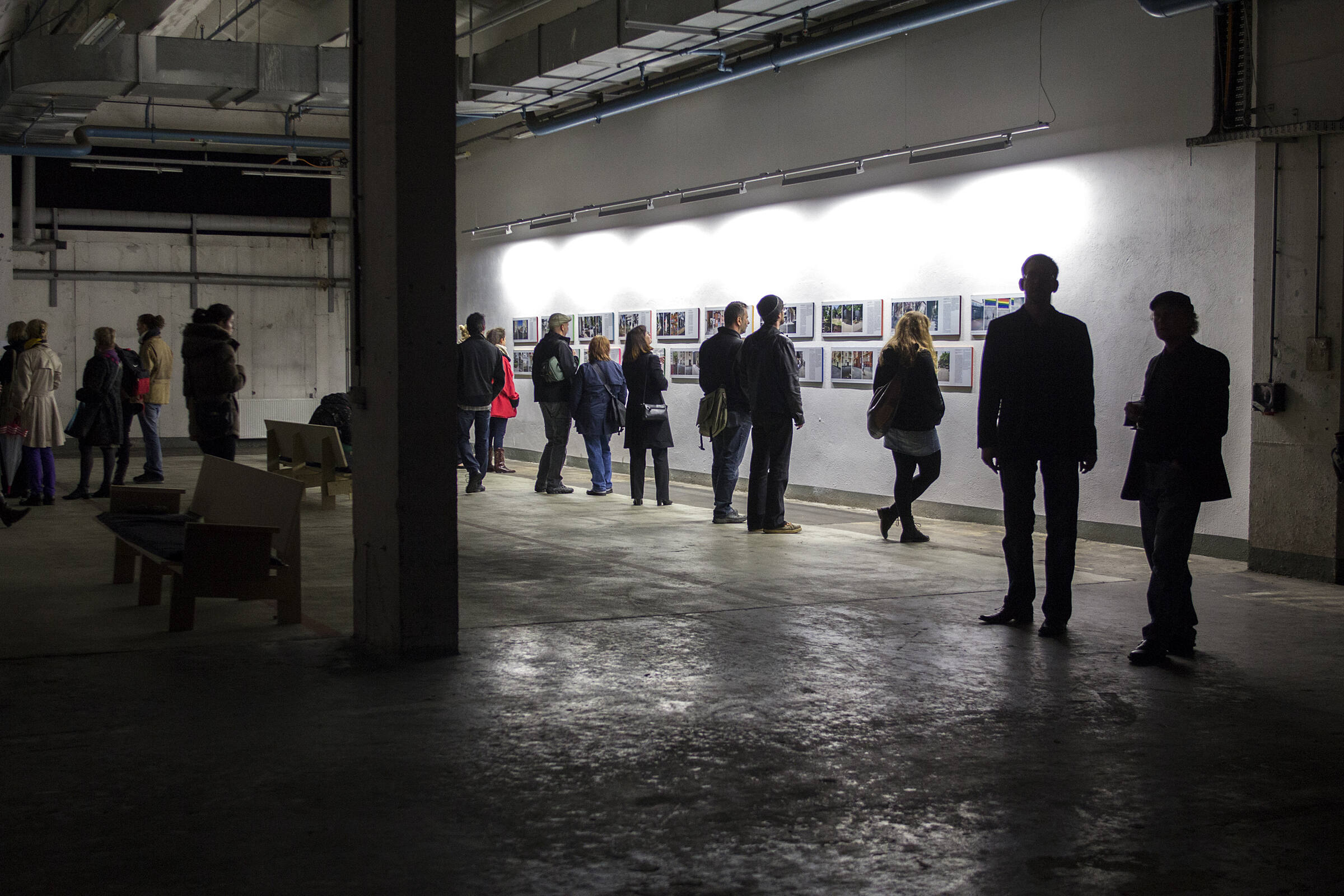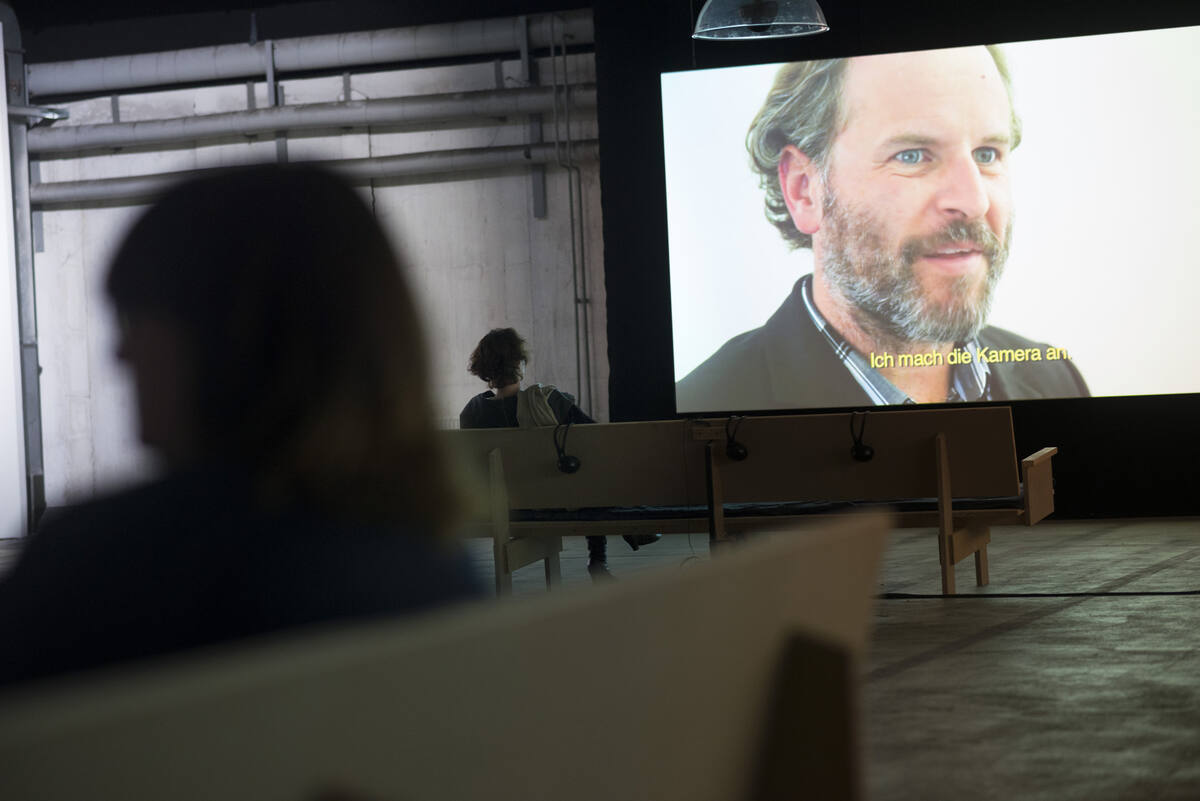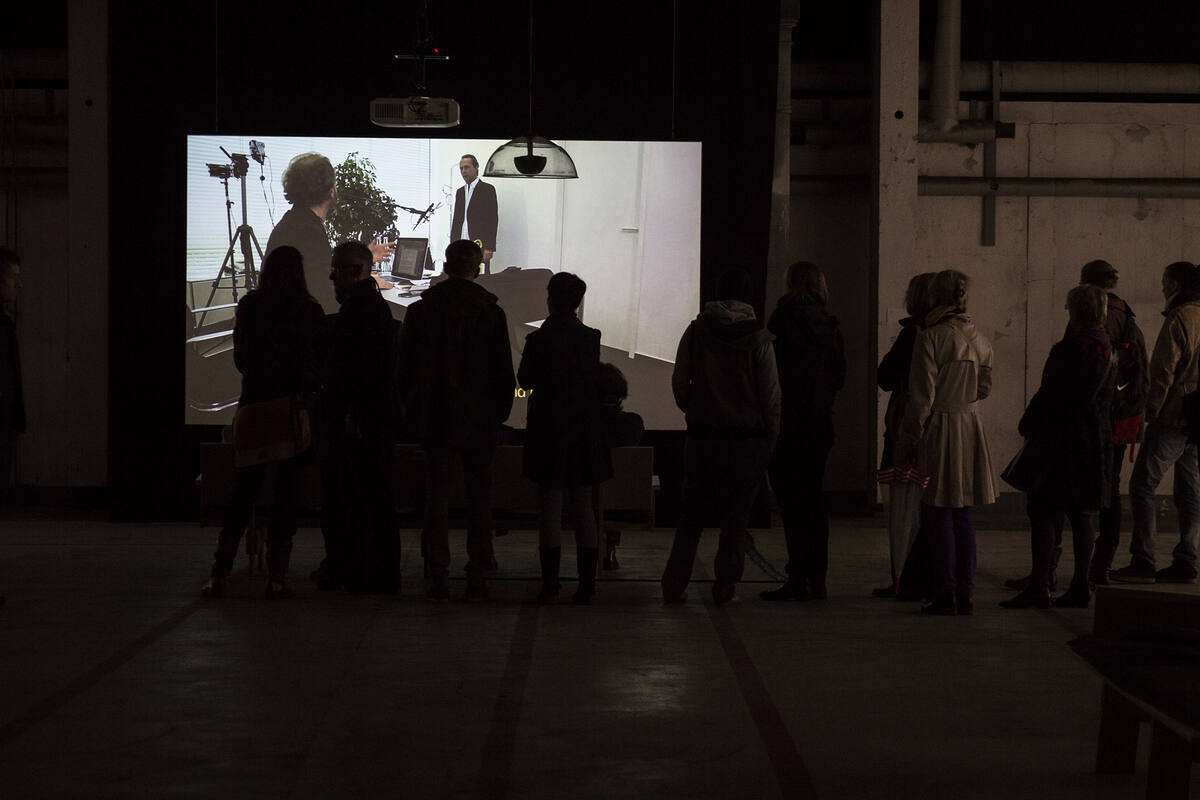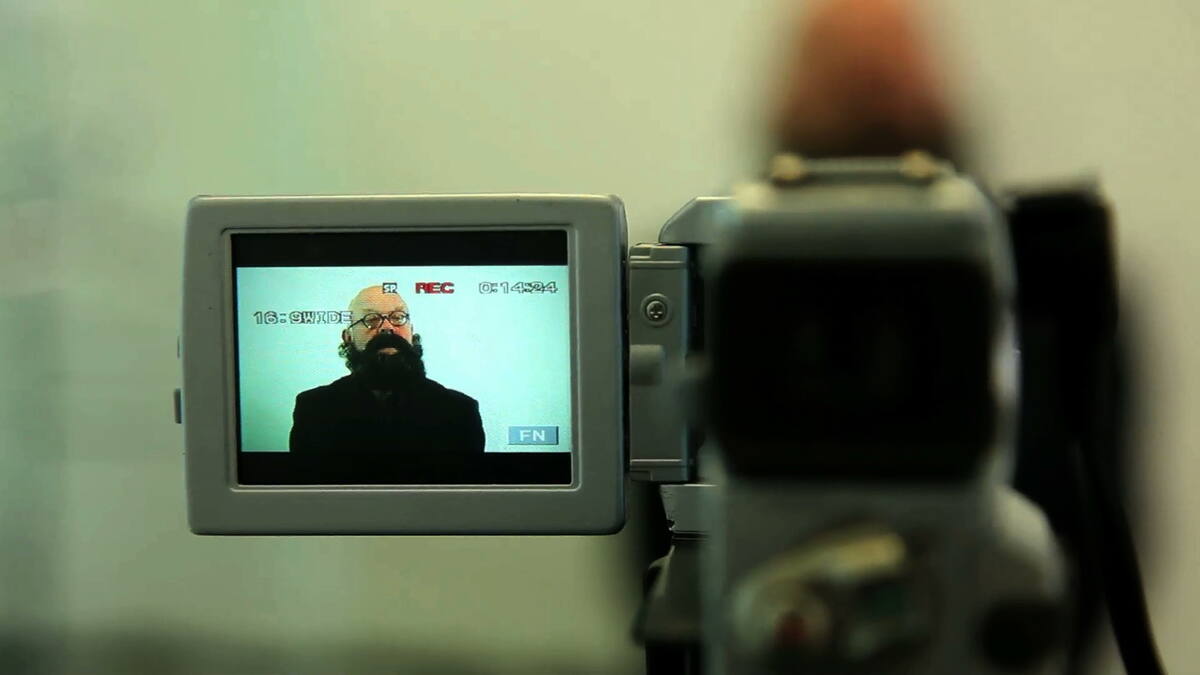Übergordnete Werke und Veranstaltungen
Some Engels
Personen
Media
Some time in the afternoon in an anonymous big city office in Berlin a group of actors are about to audition. A young American casting director from Brooklyn is apparently looking for an actor to play Friedrich Engels in a film otherwise not referred to. He has to hold the funeral oration Engels held in English for his friend and comrade in arms Karl Marx on 17 March 1883 at a ceremony with no more than eleven guests.
The six actors invited to the audition provide a short overview of their biographies, enumerating their professional success or lack of it and endeavouring to present themselves as appropriate candidates for the role while under fire by the increasingly quibbling torments imposed by the casting director. They turn to the camera, modulate their voices, strive to merge with the aged Engels, revealing in the process the deeper recesses of their own souls. The actors engaged by Johne embody diverse characters. There’s the sad, sensitive old friend who recites the text with surprising emotionality, sincerely bidding farewell. Then there’s the disillusioned one, who after a somewhat aloof but technically proficient performance cannot hide his disappointment at the fact that the casting director does not even see fit to reward him with an “auf Wiedersehen”. Another actor, whose movements and expression are so youthful as to rule him out for the 63 year old Engels, is showered with attention by the comparably young director. This convincingly alternative Engels, the young, pugnacious and brawny Max Baum, is even bid farewell by the director with the compliment that he brought off the role better than any of his predecessors.
The viewer rapidly infers that the casting director has decided on the basis of personal sympathy instead of seeking historically accurate characteristics. Apart from a fleeting glance at an old black and white photo, he wastes no time considering verisimilitude, unconcerned to find out what Marx and Engels were really like. The historical personages and the entire context remain alien to him. He has just listened with empathy to the performance by Siegfried Uhlitzsch1 and nowbecomes the representative of a world where only external appearances count. He has the actors turn around in front of the camera, present their hands and put on ill-fitting false beards. The viewer is seduced into assuming his role, tempted to identify with him, suddenly arriving at the frightening realisation that this casting director has spent so much time casting reality TV that he has lost touch with real life.
According to the expert on communism Wolfgang Leonhard, interest in Marx today is bigger than ever. Marx’ and Engel’s account of political economy have in recent decades lost the label “utopian” and are being read as far-reaching scientific analyses, “their theory of value is not a description of the phenomena of capitalism in the nineteenth century but rather the analysis of the fundamental laws of movement in capitalist economy and the resulting fetishist forms of consciousness. This analysis has lost none of its validity. The commoditization of society Marx analysed and criticised lives on. The fetishism of value determines people’s lives instead of those people autonomously planning their own existence. Society in its entirety confronts us today, even more than in Marx’ time, as a systematic mystification.”2
Johne’s film works with counterpoint. The actors are supposed to speak at the grave of the very person who promulgated more radically than any other the idea of a free and just society and yet they are themselves imprisoned in the exactly contrary situation. They offer no resistance, must practice patience, they are powerless to do anything even when an ignorant casting director employs subtle tactics to destroy their human dignity.
Johne’s figures unsettlingly depict the creeping depletion of self-esteem manifested in differing degrees by all the participants. We see the years of want, the ever unfulfilled hope of a new shining future. The protagonists’ shaky convictions as they gradually jettison their ideals contrast in the end with our acquaintance with a tradition of real social criticism and utopian political models extending from the ancients through the classical utopians Thomas More, Tommaso Campanella and Étienne-Gabriel Morelly on up to the radical schemes of Marx and Engels.
Johne’s pieces approach reality in multifaceted ways. The more recent Griechenlandzyklus (2011) consists of laconic tales presenting an ambivalent and contradictory image of the crisis In Greece. Ostdeutsche Landschaften (2005) and Wachwechsel (2003) contain doubtful reports and questionable accounts of strange states of affairs in a documentary form. Großmeister der Täuschung (2005) tells of a parking attendant who built a spaceship in his yard. Wanderung durch die Lausitz (2006) reports on a small place in the provinces that transformed itself into a Wild West town. Johne’s medial reporting, based on collections of text and other material, always betray a subtle instinct for the state of society.
Concatenations and the complex tension between text and image is what Johne is interested in. The connection between language and image is one of the distinguishing features of his conceptual works, coming to the fore in Some Engels, where it effects a critical analysis of a system in which humiliation is a prerequisite for success, in which entertainment, diversion and distraction are sovereign and in which the hopes and utopias keep getting smaller, more inconspicuous and more insignificant. Can the relation between truth, reality and image be represented? Are we able to find a truth in Johne’s stories? Does documentary material provide real, objective evidence of anything? Johne’s stories show us that there exist many truths and that everyone has to find out for themselves which ones apply.
Annegret Laabs
1 All the actors are referred to by their real names, emphasising their real presence and played by real actors whose careers are not far off from the characters they play.
2 Quoted in Stephan Grigat, Kritik und Utopie. Gesellschaftskritik am Ende des 20. Jahrhunderts und der Marxsche Kommunismus. In: Weg und Ziel, 4/1997. Transl. SB.






